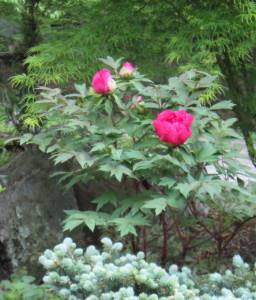Hello Fellow Readers, We rose for the sunrises while visiting Virginia Beach, but the biggest delight of all was the moonrise, having never seen one along the ocean. The Beaver Moon moonrise on November 19th was extraordinary, starting as an orange glow on the horizon before climbing the night sky and skimming light along the dark ocean floor. Then overnight came overshadowing, unbeknownst to me.
It occurs to me we don’t seek to see moonrises over sunrises as there are only twelve full moons a year, sometimes thirteen, while the sun is full every day. Slivers of moon, waxing or waning, or half-moons aren’t nearly as noticeable combined with the variable of stormy skies. Of course, a new moon isn’t visible at all unless there’s a solar eclipse—talk about dramatic.
Full Moons have names.
Full moons in each month have a name, a tradition that began from native Americans. Many know about the Harvest Moon, the full moon closest to the fall equinox in September, though sometimes in October. The November moon, the Beaver Moon, is when they hunker down in their lodges for winter.
Unbeknownst to me, overnight, the earth overshadowed the sun from reflecting off the Beaver Moon I saw rising in the sky on November 19th, creating a partial lunar eclipse that was “the longest eclipse of its kind in 580 years,” per Space.com lasting close to six hours.
Speaking of overshadowing…
Speaking of overshadowing, I’d like to share a story from six years ago fitting to revisit today…
Thanksgiving is a time to gather and reflect on gifts we are grateful for. Versions of the holiday are celebrated at different times of the year by other countries as well. While folks consider it a secular holiday, most religions offer prayers of thanks after harvests or other times. Wonderful to imagine, despite our differences, we share gratitude and thankfulness.
In today’s world, it’s hard to see beyond devastating violence and fear caused by intolerance driven by the regrettable human condition, the need to be right. We feed the division by engaging in it. Media counts on it for ratings and clicks, and politicians depend on it for votes. And we sadly follow their lead, setting an example of intolerance to our youth.
Wisdom from a Tree Peony
Before Thanksgiving, I had a joyful visit with June of East Bangor, PA, who lives in her family home dating back a hundred years. In her garden is a Tree Peony (Paeonia suffruticosa) planted by her Aunt Stella nestled below several mature Norway spruce. While peony like a break from the hot sun with dappled shade, they’ll struggle if overshadowed.
I suggested we move her peony to a sunnier spot. Indeed, peonies don’t like to be moved, but fall is the best time to try. For now, June prefers to keep her peony where she is. Let her live out her years rooted where she’s been. There’s great respect in that.
Plants, like people, need each other.
Like people with opposite points of view, different religions, and cultures, plants need their own space to thrive. Yet they also rely on other plants, including other species, as Peter Wohlleben so poignantly writes in The Hidden Life of Trees.
All people and plants need nourishment, water, and love. Each is an individual, but together they create a beautiful garden and ecosystem for pollinators and other wildlife if we allow it. Or we can destroy it with toxic chemicals and overshadowing, rather than allowing each what is needed while living in harmony. Imagine if we gave each other just that. Without judgment. Without intolerance. Without fear. These things I pray for our world, which begins here at home.
Garden Dilemmas? AskMaryStone@gmail.com (and your favorite Podcast App.)
The story of June’s peony is part of Episode 22 in the Garden Dilemma’s Podcast on your favorite Podcast App or link below:
Link to a previous column featuring the Hidden Life of Trees and another that includes Planting by the Moon
More about the Beaver Moon lunar eclipse 2021 and Full Moon Names And Their Meanings




